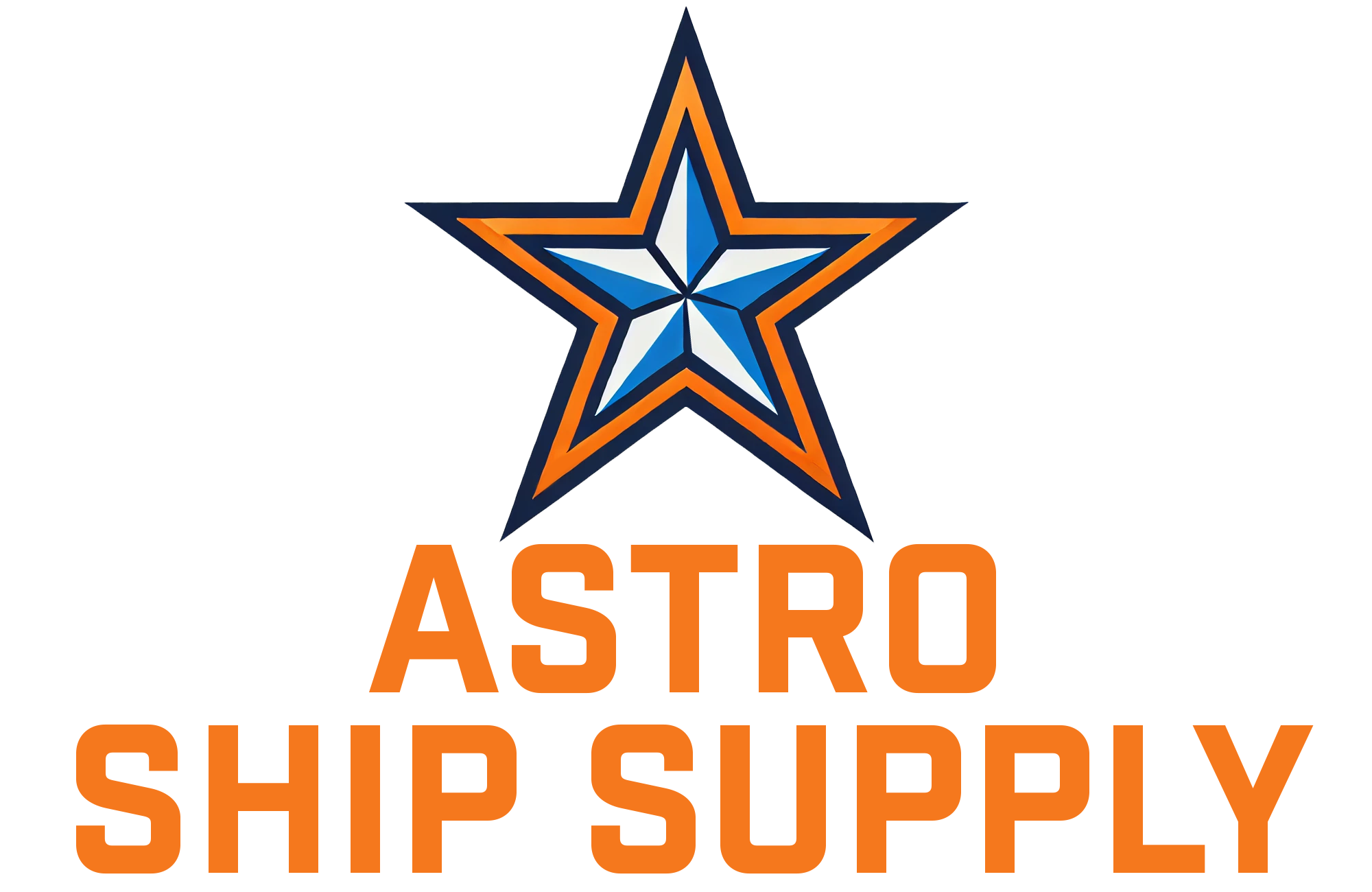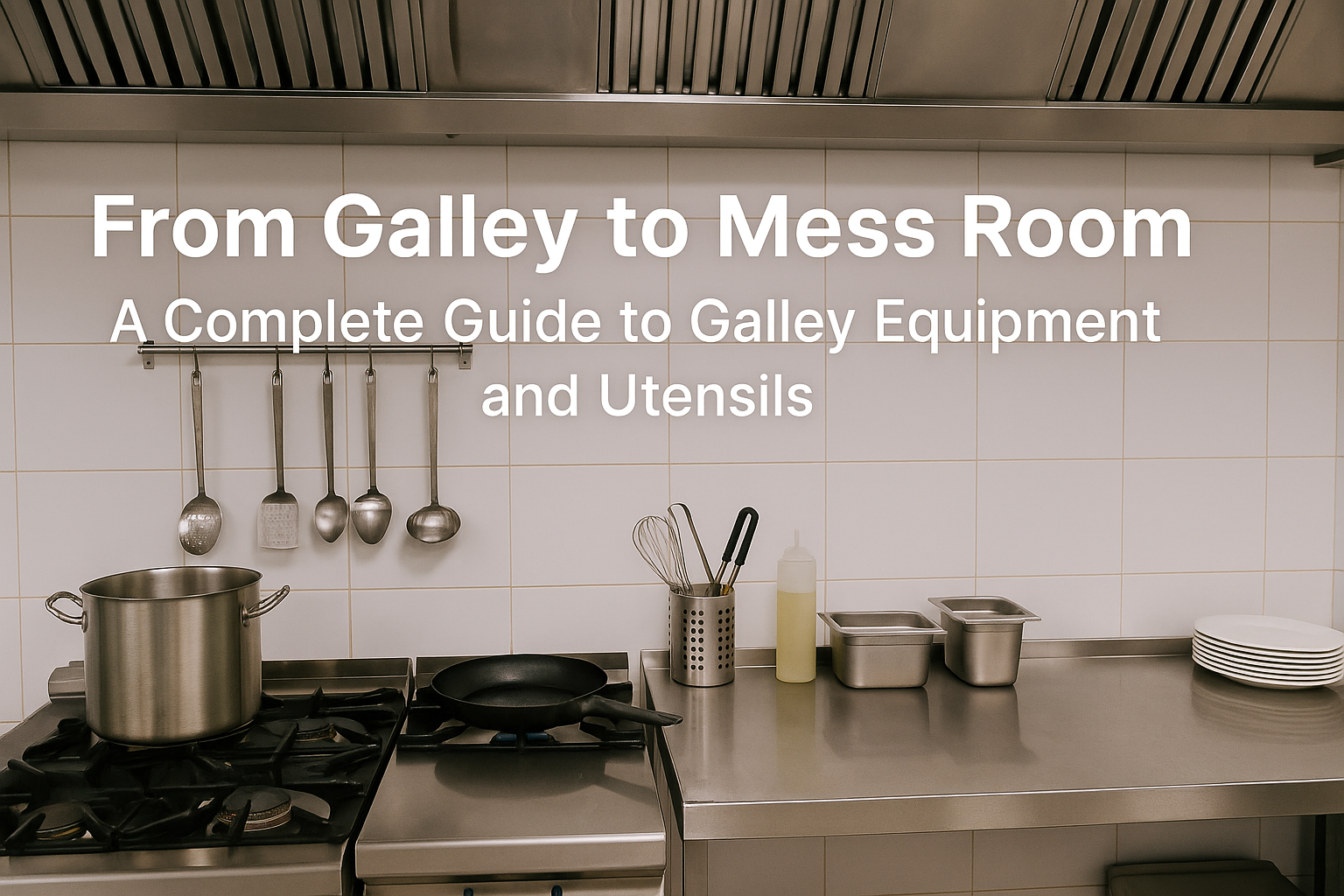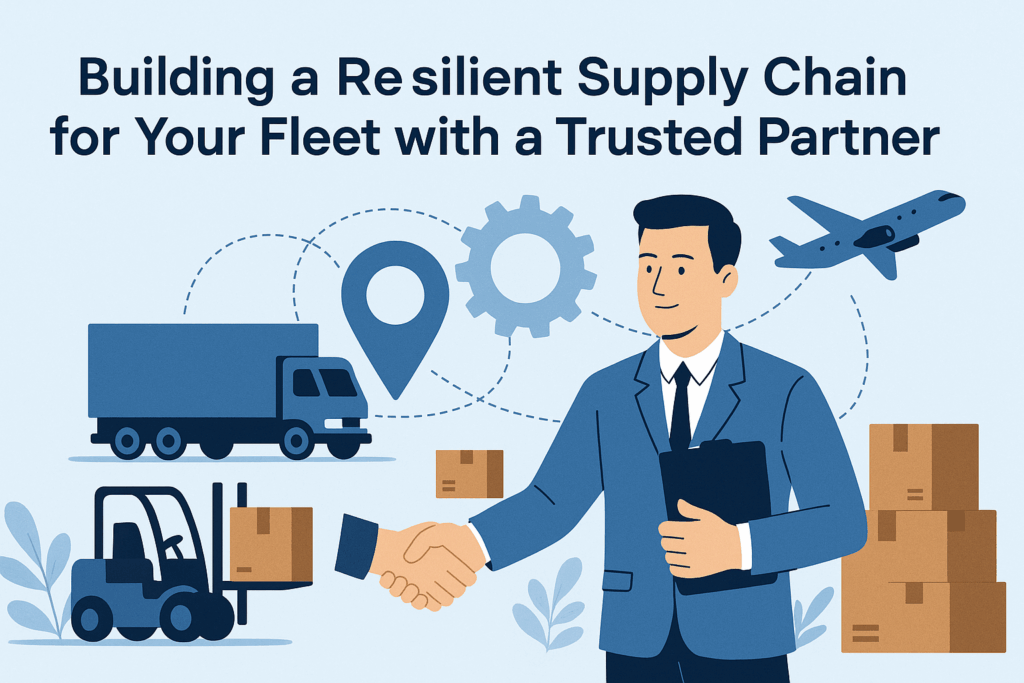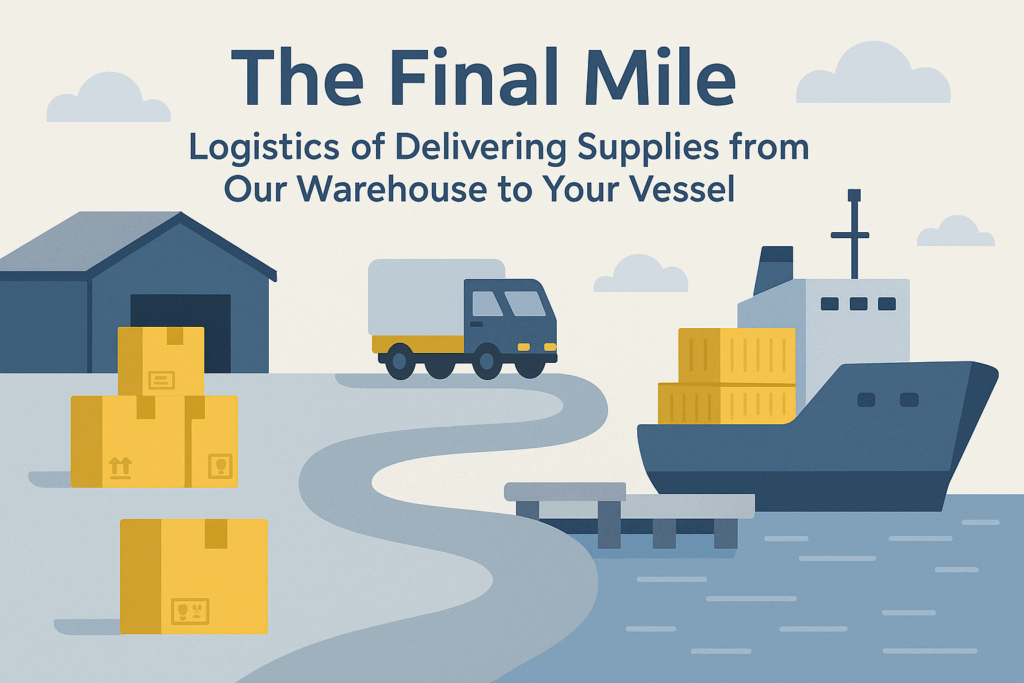—
The Critical Role of a Ship’s Galley: More Than Just a Kitchen
Imagine long voyages, often spanning weeks or even months at sea. During this time, the galley transforms from a simple food preparation area into a vital hub. It’s where energy is replenished, camaraderie is fostered, and a sense of normalcy is maintained amidst challenging conditions. A poorly equipped or inefficient galley can lead to:
- Reduced Crew Morale: Subpar meals or limited options can significantly impact crew satisfaction and lead to demotivation.
- Health Concerns: Inadequate refrigeration or cooking facilities can compromise food safety, leading to illness and operational disruptions.
- Operational Delays: Breakdowns in galley equipment can halt meal preparation, diverting valuable time and resources.
- Increased Costs: Inefficient equipment can lead to higher energy consumption and increased waste.
Conversely, a well-planned and maintained galley contributes directly to a healthier, happier, and more productive crew, ultimately enhancing the vessel’s overall operational efficiency. This understanding forms the foundation of smart procurement for any maritime professional.
—
Essential Galley Equipment: Building the Foundation
Just like a land-based restaurant, a ship’s galley requires a core set of equipment to handle diverse culinary needs. However, unlike a static kitchen, marine galley equipment must be robust, space-efficient, and designed to withstand the unique challenges of the maritime environment, including constant motion, limited space, and corrosive elements.
Cooking Appliances: The Workhorses of the Galley
These are the primary tools for meal preparation. Selecting the right appliances depends on the size of the crew, the type of voyages, and available power sources.
- Marine Ranges/Stoves:
- Electric Ranges: Common on larger vessels with stable power. Offer precise temperature control and are easy to clean.
- Gas Ranges: Preferred on some vessels for their quick heat and flame control, though requiring careful management of gas cylinders.
- Induction Cooktops: Gaining popularity due to their energy efficiency, safety (no open flame), and rapid heating.
- Gimbled Stoves: Essential for smaller vessels or those operating in rough seas, these stoves pivot to keep cooking surfaces level, preventing spills and accidents.
- Ovens:
- Convection Ovens: Ideal for even cooking and baking, crucial for varied meal preparation.
- Combination Ovens (Combi Ovens): Highly versatile, capable of steaming, baking, roasting, and more, maximizing functionality in limited space.
- Griddles and Fryers: For preparing breakfast items, grilled foods, and fried dishes efficiently. Marine-grade units are built to withstand heavy use.
- Microwave Ovens: Indispensable for quick reheating and defrosting, saving time and energy.
Refrigeration and Storage: Preserving Freshness at Sea
Maintaining food safety and freshness over long periods is a major challenge at sea. High-quality refrigeration is non-negotiable.
- Marine Refrigerators & Freezers: Built with robust compressors and insulation, these units are designed to operate reliably in varying temperatures and challenging marine conditions. They come in various sizes, from under-counter units to large walk-in cold rooms.
- Blast Chillers/Freezers: For rapidly cooling cooked food to safe temperatures, preventing bacterial growth and extending shelf life.
- Storage Cabinets & Shelving: Designed for secure storage, preventing movement of provisions and utensils during rough seas. Look for marine-grade materials like stainless steel.
Food Preparation Equipment: Efficiency and Hygiene
These tools streamline the food preparation process and ensure high standards of hygiene.
- Sinks and Dishwashers: Marine-grade stainless steel sinks are durable and easy to clean. Compact, efficient dishwashers are crucial for maintaining hygiene with limited water resources.
- Worktables & Countertops: Stainless steel surfaces are ideal for food preparation due to their durability, ease of cleaning, and resistance to corrosion.
- Food Processors & Mixers: Essential for large-batch cooking, saving time and effort.
- Slicers: For consistent and safe slicing of meats, cheeses, and vegetables.
—
Galley Utensils: The Detail-Oriented Essentials
While large appliances form the backbone, it’s the quality and availability of smaller utensils that truly define a functional galley. These items might seem minor, but their impact on efficiency and crew satisfaction is significant.
Cooking Utensils: From Prep to Plate
- Knives: A full set of sharp, high-quality chef’s knives, paring knives, bread knives, and carving knives is essential. Proper storage for safety is key.
- Pots & Pans: Durable, marine-grade stainless steel or heavy-gauge aluminum pots and pans in various sizes. Non-stick options are also valuable.
- Spatulas, Ladles, Tongs, Whisks: A comprehensive collection of these basic tools in heat-resistant materials.
- Cutting Boards: Multiple, color-coded cutting boards (e.g., for raw meat, cooked meat, vegetables) to prevent cross-contamination.
- Baking Sheets & Roasting Pans: For oven use.
Serving & Dining Ware: Creating a Pleasant Mess Room Experience
The mess room is where the crew gathers, and the quality of dining ware contributes to a pleasant atmosphere.
- Plates, Bowls, Cups: Durable, stackable, and often non-slip materials like melamine or reinforced porcelain.
- Cutlery: Stainless steel forks, spoons, and knives.
- Serving Dishes & Platters: For presenting meals attractively.
- Insulated Food Carriers/Thermoses: For transporting hot food safely from the galley to remote areas of the vessel or for staggered meal times.
Cleaning Supplies: Maintaining Hygiene Standards
Cleanliness in the galley is not just about aesthetics; it’s about food safety and preventing the spread of illness.
- Marine-Grade Cleaning Agents: Specifically designed for marine environments, effective against grease and grime, and safe for use around food.
- Sponges, Brushes, Scouring Pads: A variety of tools for effective cleaning of all surfaces and equipment.
- Disinfectants: To ensure all surfaces are sanitized.
- Trash Bins: Foot-pedal operated, lid-covered bins to maintain hygiene and control odors.
—
Comparative Analysis: Traditional vs. Modern Galley Solutions
The maritime industry is constantly evolving, and so are galley technologies. Understanding the pros and cons of traditional setups versus modern innovations can guide smart investments.
Traditional Galley Setups:
- Pros:
- Often simpler in design, potentially easier for basic repairs.
- Familiarity for experienced crew members.
- Cons:
- Higher energy consumption (e.g., conventional electric resistance heaters).
- Less efficient use of space.
- Limited automation.
- Potentially higher operational costs over time.
Modern Galley Solutions (e.g., Combi Ovens, Induction Cooktops, Advanced Refrigeration):
- Pros:
- Energy Efficiency: Significantly lower power consumption, reducing fuel costs and environmental impact.
- Space Optimization: Multi-functional equipment reduces the need for multiple single-purpose appliances.
- Improved Food Quality & Safety: Precise temperature control, rapid chilling, and advanced cooking methods.
- Enhanced Hygiene: Easier to clean, often with self-cleaning features.
- Reduced Labor: Automation and efficiency features streamline processes.
- Cons:
- Higher initial investment.
- Requires crew training for new technologies.
- More complex repairs might require specialized technicians.
Recommendation: For new builds or major refits, investing in modern, energy-efficient solutions typically offers a superior return on investment through reduced operational costs and improved crew welfare. For existing vessels, targeted upgrades to key appliances can yield significant benefits.
—
Case Approach: Equipping a New Offshore Supply Vessel (OSV)
Let’s consider a practical scenario: outfitting the galley of a new OSV designed for long-duration deployments with a crew of 20. The priorities are durability, efficiency, and the ability to provide diverse, high-quality meals.
Challenge: Maximize galley functionality and crew satisfaction in a confined space, ensuring fresh provisions for extended periods.
Solution Strategy:
- Primary Cooking: A marine-grade, heavy-duty combination oven (combi oven) for versatile cooking (steaming vegetables, roasting meats, baking bread) paired with a four-burner induction cooktop for rapid, safe heating. This minimizes heat output in the galley and maximizes energy efficiency.
- Refrigeration: A dedicated walk-in cold room/freezer for bulk storage of provisions, complemented by a smaller, easily accessible reach-in refrigerator for daily use items. A blast chiller is essential for food safety during batch cooking.
- Food Preparation: A robust food processor for chopping and mixing, a commercial-grade slicer, and ample stainless steel work surfaces with integrated sinks.
- Utensils & Ware: High-quality, durable stainless steel pots, pans, and cutlery. Melamine dinnerware for its breakage resistance.
- Hygiene: A compact, high-efficiency marine dishwasher and strategically placed handwashing stations.
Expected Outcome: This setup allows the galley staff to prepare a wide variety of fresh, nutritious meals efficiently, maintain stringent hygiene standards, and ensure the well-being of the crew throughout long missions, contributing directly to operational success.
—
Beyond the Basics: Strategic Considerations for Galley Management
Equipping the galley is just the first step. Effective galley management extends to provisioning, inventory control, and maintenance.
Provisioning & Supply Chain Excellence
Reliable provisioners are your lifeline. Look for partners who understand the unique demands of maritime logistics, offering:
- Quality Assurance: Ensuring fresh, high-quality provisions that meet international food safety standards (e.g., HACCP compliant).
- Timely Delivery: Crucial for maintaining schedules and preventing spoilage.
- Customization: Ability to source specific dietary requirements or preferences for your diverse crew.
- Bonded Store Services: Access to duty-free goods for crew consumption, significantly boosting morale. (Learn more about Bonded Stores).
Inventory Management & Waste Reduction
Efficient inventory practices minimize waste and optimize budget.
- FIFO (First-In, First-Out): Rotate stock to ensure older items are used first.
- Menu Planning: Plan menus that utilize ingredients efficiently and minimize spoilage.
- Portion Control: Manage serving sizes to reduce plate waste.
Maintenance & Longevity
Regular maintenance extends the life of your equipment and prevents costly breakdowns.
- Routine Cleaning: Daily cleaning of all surfaces and equipment.
- Preventative Maintenance: Schedule regular checks and servicing of critical appliances (refrigerators, ovens) by qualified technicians.
- Spare Parts: Keep essential spare parts on hand for common wear-and-tear items.
—
The Astro Ship Supply Advantage: Your Partner in Galley Excellence
At Astro Ship Supply, we understand the intricacies of marine operations. We’re not just suppliers; we’re partners committed to ensuring your vessel’s galley is equipped for peak performance and crew satisfaction. From premium food provisions and essential deck supplies to comprehensive cabin and accommodation solutions, our Texas-based supply chain is meticulously managed to meet stringent maritime standards.
Our commitment to excellence is reflected in our certifications, including ISO 9001:2015 for Quality Management and HACCP for Food Safety Management. We ensure every item delivered adheres to the highest quality and compliance protocols. Partnering with Astro Ship Supply means choosing reliability, efficiency, and a dedicated team available 24/7 to support your vessel’s needs, wherever you are in the Gulf Coast region and beyond.
—
Frequently Asked Questions (FAQ) about Ship Galley Equipment & Supply
What are the most critical pieces of equipment for a ship’s galley?
The most critical pieces of equipment include a robust marine range or stove (electric, gas, or induction), reliable marine-grade refrigerators and freezers, and durable stainless steel worktables and sinks. These form the core for food preparation, cooking, and safe storage.
How do marine galley equipment differ from standard kitchen appliances?
Marine galley equipment is specifically designed to withstand the harsh marine environment. This includes features like gimbals for stability in rough seas, robust construction to endure vibration and impact, corrosion-resistant materials (e.g., high-grade stainless steel), and often more compact designs to maximize limited space. They are also built to meet specific maritime safety and operational standards.
What are “bonded stores” and why are they important for a vessel’s galley?
Bonded stores refer to duty-free goods and provisions supplied to vessels for consumption by the crew while at sea or in transit. These can include tobacco, alcohol, confectionery, and personal hygiene items. They are important for a vessel’s galley and overall crew welfare as they provide crew members with access to amenities at reduced prices, significantly boosting morale during long voyages. They are typically stored securely and managed under specific customs regulations.
How can a vessel ensure food safety and hygiene in the galley?
Ensuring food safety and hygiene in a vessel’s galley involves several key practices: implementing HACCP (Hazard Analysis and Critical Control Points) principles, maintaining strict temperature controls for perishable goods, using separate cutting boards for raw and cooked foods, ensuring proper handwashing protocols, regularly cleaning and sanitizing all surfaces and equipment with marine-grade products, and proper waste management. Regular crew training on food handling and hygiene is also crucial.
What should be considered when selecting a ship chandlery service for galley provisions?
When selecting a ship chandlery, consider their reputation for reliability and quality, their compliance with international food safety standards (like HACCP), their ability to deliver promptly to your specific port, the breadth of their product range (including fresh produce, dry goods, and specialized items), their customer service and 24/7 support availability, and their experience with vessels similar to yours. A chandler like Astro Ship Supply, with ISO 9001:2015 certification, demonstrates a commitment to quality management.
—
Ready to optimize your vessel’s culinary capabilities? Request a quote from Astro Ship Supply today and experience the difference that quality, efficiency, and unwavering support can make for your maritime operations.






